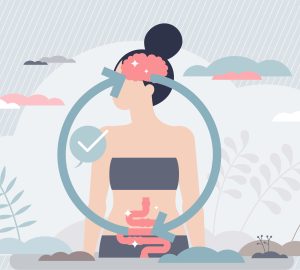One of the hardest things for parents to do is watch their child struggle. Contrary to the nursery rhyme, growing up can’t be all puppy dog tails and sugar and spice. But with the right guidance and professional advice, parents can help their kids navigate rough waters to grow up successful, confident and happy.
advances in autism
There are few words that parents fear more than ‘autism.’ The newest figures show that one in 68 children will be diagnosed with the disorder, more if it’s a boy. But what causes autism, and what can we do to help these youngsters? Perhaps the scariest part of the condition is how many questions we still have despite recent advances.
what, exactly, are we talking about?
Experts now believe that autism is the result of genetic and environmental factors that work together, sometimes before the baby is born.
“Autism spectrum disorder is a neurodevelopment disorder that starts early in development. It’s characterized by persistent deficits in social communication (communication with the purpose of interacting socially) and social interaction, and repetitive patterns of behavior, interests or activities. Researchers know some of these environmental triggers, which include maternal age and certain medications.”
>> Dr. Rolanda Maxim, SLUCare developmental pediatrician and director of the Knights of Columbus Child Development Center
“There’s not one kind of autism. We know clinically that children have symptoms along a spectrum.”
>> Dr. Eric Spiegel, a child psychiatrist at St. Louis Children’s Hospital and Washington University School of Medicine
early signs
According to Maxim, researchers are looking for an early biomarker that would allow doctors to diagnose autism at birth, before the onset of observable symptoms, so they can begin interventions immediately.
“The brain is so flexible early on. It would be easier to improve kids’ function and even hope for a cure if we had a way to diagnose autism at birth.”
>> Dr. Rolanda Maxim
Now, following a ‘high-risk’ screening, parents are referred to a developmental pediatrician. Because it may take six months or longer to get an appointment, Maxim says parents shouldn’t wait for a formal evaluation if they know their child needs:
❱❱ speech therapy,
❱❱ a psychiatrist or
❱❱ occupational therapy
First Steps, Missouri’s early intervention system, or your local early childhood center can get the ball rolling, even without a specific diagnosis.
“Children as young as 15 months can be screened for autism by their pediatrician using the Modified Checklist for Autism in Toddlers (M-CHAT) developmental screening tool. Early screening may change the pathway the child is on.”
>> Dr. Eric Spiegel
➡ Spiegel lists a number of development milestones and behaviors that may indicate a child has autism:
❱❱ no big smiles or other warm, joyful expressions by 6 months
❱❱ no back & forth sharing of sounds by 9 months
❱❱ no babbling or social interactions (waving, pointing, showing toys) by 12 months
❱❱ no words by 16 months
❱❱ no meaningful two-word phrases by 24 months
on the horizon
A study is underway with twins and young babies that examines where they focus their vision when looking at a video of a person. This research may
help detect autism at a much younger age.
“They’ve found that babies who later are diagnosed with autism focus all over the environment, while neurotypical babies focus around the eyes and face of the talking person.”
>> Dr. Eric Spiegel
There’s another study coming out that looked at the health records of more than 9,000 patients with autism.
“This study found that children with autism had more medical issues every step of the way. Moms had more problems during pregnancy; inductions and C-sections were more common; and the babies were smaller and more likely to have jaundice.”
Maxim urges parents to join research studies and participate in the national registry, adding:
“This study is an example of how the registry and parents can really help solve the puzzle of autism.”
>> Dr. Rolanda Maxim
[acing acne]
Americans spend more than $3 billion annually on acne treatments. That’s understandable, considering how uncomfortable the problem can be for a maturing child. Parents are just as eager as their teens to get to the bottom of it.
common complaint
Teenage acne or acne vulgaris (Latin for ‘common’) affects 85 percent of people between the ages of 12 and 24 years old, according to Dr. Andrea Garrett, a dermatologist at St. Louis Dermatology & Surgery Center. It’s a chronic inflammatory condition of the skin that can affect the face, neck, chest, back, shoulders and upper arms. While most teens have dealt with an occasional, annoying breakout (hopefully not on picture day), severe acne is a different story. It can lead to permanent scars and skin damage, as well as poor self-esteem, depression and anxiety. Fortunately, treatment options abound.
the back story
It’s no coincidence that the onset of acne coincides with puberty, when hormones ramp up. “It’s mostly a hormonal and genetic problem that results in overactive oil (sebaceous) glands combined with follicular plugging,” Garrett explains. Other factors that can make the situation worse include environment, diet and stress. According to Dr. Joseph Muccini, a dermatologist at MidAmerica Skin, Health & Vitality Center, things like working over a greasy grill flipping burgers, using hair gel and wearing baseball caps—which describes pretty much every teenage boy—can make acne worse. Avoiding foods like chocolate, soda and greasy pizza won’t eliminate acne but can help control outbreaks, too, he says. Emotional stress and menstruation also can lead to temporary breakouts.
Hygiene practices are an obvious but often overlooked cause of acne, Muccini says. “Girls tend to have an earlier consciousness about taking better care of themselves,” he explains. “Getting a young boy to wash his face twice a day is a challenge.” However, Muccini adds the majority of acne could be dealt with by simply washing the face twice per day with a store-bought cleanser. It’s also important to avoid picking at and squeezing pimples, as this can cause an infection and possibly lead to a cyst or nodule.
seek a solution
Topical medicines are the standard of care for mild acne. “At-home, over-the-counter product combinations like Proactiv, plus a daily mild cleanser, are adequate,” Garrett says. “Daily SPF 30 face lotion in the morning is important, too, because several products are sun sensitizing.” Oral antibiotics used in combination with benzoyl peroxide topical treatments are another option, Muccini notes. He also recommends “turbo-charged” drugs that have high doses of vitamin B3 combined with minerals like zinc, copper or folic acid. For women dealing with hormonal acne, oral contraceptives containing estrogen may help.
For severe acne that does not respond to anything else, Isotretinoin—commonly referred to by its former brand name, Accutane—is the gold standard, Muccini says. He jokingly refers to it as the nuclear weapon for fighting nodulocystic acne, which is characterized by inflammation, lesions and cysts. For many people with severe acne, the benefits, which include improved self-esteem and reduced scarring, outweigh the potential risks.
the bottom line
See a dermatologist if your child’s over-the-counter products are failing, especially if the acne is leaving any marks/scars, Garrett advises. “Most treatments are covered well by insurance, and even those without coverage have access to cost-effective prescription treatment,” she says. “Prescription products always will have the potential to work better than OT C. All treatments usually take two to three months for the full effect and need to be used chronically to maintain the effect. No treatments work overnight.”
[the tutoring trend]
Tutoring is one of the fastest growing trends in education. School is competitive, and every parent wants to see their kids at the top of the class—in the best schools, no less. Whether it’s help with time management or mathematics, parents are embracing the tutoring trend.
business or pleasure?
Tutoring has grown into at a multi-billion dollar business. Children, some as young as 5 years old, are getting help with a difficult class or study habits or using it simply to gain a competitive edge. But is it necessary, or just another example of helicoptering parents? “I think tutoring has become the ‘norm,” says Stephanie Zornes, an academic coach and special educator at Special Solutions. “St. Louis is unique because we have a large number of private schools, most with rigorous curricula. Tutoring becomes necessary in order to keep up and stay on par with peers.”
Karen Carroll, owner and president of KCI Enterprises/Sylvan Learning says tutoring is an investment that can have a lifelong impact. “How well students perform in elementary, middle and high school sets their path in motion for advanced education and success as an adult,” she says. “It provides self-confidence and self-esteem.” College prep remains more important today than ever before, with more and more students going to college, she adds. “Why not give your child every advantage to feel the success of getting into their school of choice and succeeding in academics and life?”
Zornes compares working with a tutor to getting in shape with a personal trainer. “Coaches or tutors don’t get students into colleges—they help boost GPAs or improve ACT scores, which can ultimately impact where the student attends college,” she says. “I would like to think that good coaching of study skills, study strategies and time management will carry them through college if they apply these skills.”
it starts with homework help
Most parents inquire about tutoring because their child is performing poorly in school and/or homework is a crisis at home. The demands on students are greater than ever. At many schools, kindergarteners are coming home with homework, and high school students are taking on multiple Advanced Placement college courses. Parents witness the high demands placed on their children and frequently don’t think twice about hiring a tutor, Zornes says.
“Parents are busy and time-crunched,” she says. “Having a coach or tutor can be a time saver with homework. And tutoring your own child can be frustrating; a tutor can take away the stress of the homework battle. Many parents tell me they really can’t help their child because the homework is too difficult.”
Tutoring often is beneficial and even essential for some kids, says SLUCare pediatrician Dr. Ken Haller. “However, if a child is already doing well, tutoring may create pressure and unnecessary stress,” he warns. “Bottom line, parents should have a discussion with their kids when tutoring is being considered to make sure everyone is clear about their goals. And parents need to remember that their kids need work-life
balance as much as parents themselves do.”








